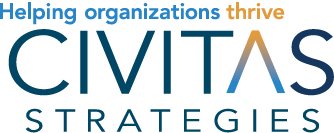How to Defend Your Exclusive Use Room
When an IRS agent tells a family child care provider she can't claim her exclusive use room, what can she do?
It happened today to a child care provider in Iowa who contacted me for help about her IRS audit. The child care provider cares for eleven children. She has one son of her own, age 11. She claimed a basement area and her toddler playroom as exclusive use rooms.
Claiming an exclusive use room will significantly increase your Time-Space Percentage and thus increase your house expenses and reduce your taxes. In the case of the child care provider in Iowa her two exclusive use rooms raised her Time-Space Percentage from 48% to 59%!
The auditor said she could never claim an exclusive use room for two reasons. One: once a day care child leaves a room it is no longer used for business purposes. Two: there is no way to prove that the child care provider's family does not use these rooms when day care children are not present.
One of the basic rules to remember if you are audited is: just because an auditor says something is true, doesn't automatically make it so. In this case, the auditor is dead wrong.
In response to the child care provider’s call for help, I drafted a letter for her to send to the auditor. I cited IRS Code Section 280A(c), the Instructions to IRS Form 8829 Expenses for Business Use of Your Home, and IRS Publication "Child Care Provider Audit Technique Guide" which all describe how a family child care provider can claim an exclusive use room. I then made the point that no home-based business uses their exclusive use rooms 24 hours a day, 365 days a year. The home owner leaves the room to eat, sleep and conduct personal activities during the day. When day care children leave an exclusive use room it doesn't convert back to personal use unless the child care provider's own family uses it personally.
Secondly, there is no way for any home-based business to prove that they don't use an exclusive use room for personal purposes unless they videotaped the room 24 hours a day, 365 days a year. This is an impossible record keeping standard that no business could meet.
The Iowa provider testified that she used her rooms exclusively for her business, she presented photographs of the room which showed no personal use. Her own son was too old to use the toddler items in the toddler playroom and he didn't need to use the toys in the basement area because he had his own toys. This evidence should be accepted by the IRS.
The letter also addresses another issue dealing with reporting Food Program reimbursements received for your own children.
I will update readers about the IRS auditor's response to my letter. If you are being audited about your exclusive use room you may want to use the arguments in my letter to defend yourself.
Tom Copeland - www.tomcopelandblog.com
Image credit: https://winnie.com/place/lasting-impressions-child-care-learning-saint-paul

